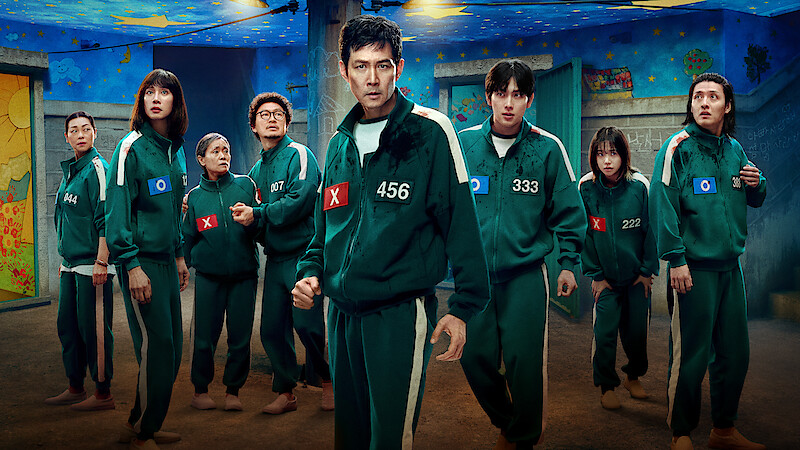I remember the day my autistic brother ran out of our house when my parents and I were away. It was his first time being home alone and he had wandered off into one of our neighbors’ backyards. He had the police called on him and my parents dropped everything and rushed to the scene.
When I found out, my heart dropped to my stomach. I closed my eyes and prayed that he was safe, that he hadn’t been shot or killed. That was the first time I’ve ever prayed.
He was fine. Our neighbors were nice people and did some research on autism after the matter was settled. When they found out he was autistic, they offered to help out if he ever needed to be home alone again.
We were lucky that our neighbors took the time to understand the situation. Little is taught about it, whether that be in high school, college, even medical school. A 2019 study showed that the majority of medical students knew little about autism. In fact, the study claimed that “more than 85% of all responders rated their general knowledge of ASD to be less than somewhat informed.” But we must strive to understand the effects of jokes and inappropriate references to autism, and how these little actions encourage larger violence and discrimination. If not, we risk minimizing an entire community of autistic individuals, many of whom cannot speak for themselves.
Autism Spectrum Disorder (ASD) refers to various symptoms, such as challenges with social skills and nonverbal communication. However, these are only some of the symptoms on the autism spectrum. This means that autism looks different for everyone.
According to Autism Speaks, a non-profit autism awareness organization, “Some autistic people can speak, while others are non-speaking [cannot articulate words] or minimally verbal [can articulate a few words but not all].” Often, those who are non-speaking or minimally verbal find other ways to communicate. For example, a student I tutored used a laminated piece of paper with a keypad to indicate what words he was trying to say.
The majority of autistic individuals struggle to learn social skills. While everyone is different, they may exhibit certain motor tics or avert eye contact during social interactions. Many autistic people prefer to speak in a literal sense instead of using slang, and tend to speak at lengths about topics of interest, making conversation a challenge.
Some people respond to this with mockery and insults that portray autistic individuals as stupid. Adrian Cervantes (‘26) explained that he most often hears “jokes about autism along the lines of ‘you’re so dumb, you must be autistic’ or name calling. For most people, it’s just another word to make fun of their friends with. Or, if you’re a jerk, to make fun of other people with.”
Logan Yockey (‘27) added that he has seen those around him mock the behaviors of autistic individuals. “Some people on my volleyball club team tend to move their body like someone would if they had autism. They’ll make sounds associated with people who have autism or other syndromes,” he said. The repetitive body movements and noises described are called stimming. Autistic individuals do this mainly to “manage emotions and cope with overwhelming situations,” according to raisingchildren.net.au, an Australian parenting website. Stimming includes hand flaps, rocking back and forth, humming, and mumbling phrases. Not everyone exhibits the same amount of stimming. Some stim for longer, and some only occasionally stim. It’s not something to be alarmed by, and nothing to laugh at either. If someone is feeling and trying to manage nervousness, the best thing to do is be respectful.
Here’s the thing: many autistic individuals are incredibly smart and talented. Over this past summer, I had the incredible opportunity of listening in on a lecture given by Dani Bowman, an animation prodigy who started her company, DaniMation, at fourteen years old. Her work was displayed at San Diego’s Comicon multiple times and she was even in Netflix’s Love on the Spectrum (2019). She was an incredible speaker who shared her experience of seeing autism as a superpower and a part of her identity. Bowman didn’t “overcome” autism by any means. Autism isn’t a disease or mental illness, contrary to what many people believe. She is an extremely accomplished autistic young woman who is proud of herself and who she is.
Language matters: using “autistic” as an insult is harmful.
Think about celebrities you admire today. It might surprise you just how many have autism. Greta Thunberg, one of the most recognized climate activists today, also has autism. Albert Einstein, often regarded as one of the most intelligent individuals to ever live, had autism. Tim Burton, a renowned producer of popular films and TV shows such as Caroline (2009) and Wednesday (2022), has autism. Susan Boyle, Isaac Newton, Anthony Hopkins — so many celebrities you know and love have autism. So, why aren’t all autistic individuals recognized for their skills in the same way?
The effects of not understanding autism can be tragic. Other forms of discrimination against autistic individuals have resulted in violence, often when autistic individuals lash out under stressful circumstances and the aggressors react by shooting and killing them.
Many of the autistic individuals I know are sensitive to sensory details, such as colors, sounds, the brightness of lights, etc. While this isn’t true for everyone, this makes crowded spaces quite overstimulating and overwhelming. In addition, autistic individuals who are non-speaking or have trouble communicating often use their bodies or some kind of vocal cue to communicate with those around them. And when those signals are misinterpreted as violent or threatening, things can go very wrong.
In 2019, when I was merely in sixth grade, I held my brother’s hand for dear life, willing to throw myself in front of him because I did not want a repeat of Kenneth French’s tragic shooting in a Costco by off-duty officer Salvador Sanchez.
According to the Washington Post, “after French had pushed Sanchez to the ground,” likely frustrated or distressed about the sea of people in the line, “French’s parents immediately tried to intervene and explain their son’s disability.” The off-duty officer “fired not once, but 10 shots that only killed Kenneth, but also severely wounded both parents.”
Sanchez did not understand French’s actions or how an autistic person’s brain typically functions. This was not a rightful excuse to shoot French to death or to injure the parents who were trying to explain the situation. Yet, no criminal charges were pushed against the officer. A misunderstanding should not cost a life.
Discrimination and violence haven’t ceased, either. Just a few months ago in March 2024, a 15-year-old autistic child, Ryan Gainer, was shot dead at his house, according to the Washington Post. As shown in body-cam footage, both deputies shot for three rounds in total. “The first deputy was at the house less than 30 seconds before Gainer charged at him,” the article said. Their only reason was that he charged at them.
It is utterly wrong to shoot a child, especially only 30 seconds into an encounter. Gainer charged at the police with a gardening hoe — they could have used a taser. And here comes the excuse I’ve heard so many times: they didn’t understand.
In no way am I saying that students at Bishop’s are encouraging the shooting of autistic individuals. But what they are doing through their language is minimizing the issue and overlooking the autistic community. This makes it harder for people who understand autism to educate others because of the negative environment surrounding them.
Some places to start are with phrasing. According to a study by Loran Kenny in the National Library of Medicine, there is no generalized term that works for every autistic individual. Most autistic individuals that I’ve encountered prefer identity-first language: phrases like “autistic individual” or “I’m autistic.” This helps undo the notion that autism is a disease and more of an identity trait. However, I’ve also met others who prefer person-first phrases like “person who has autism” or “I have autism.” The best way to know is to ask. And, of course, the disrespectful jokes need to stop, too.
So, now you know. The best way to learn more is to interact normally with autistic individuals as you see them and not shy away. Educate yourselves with resources like Autism Speaks, or attend the upcoming Service Fair and stop by the Autism Tree Foundation’s station. There is always more to learn and room to grow.









